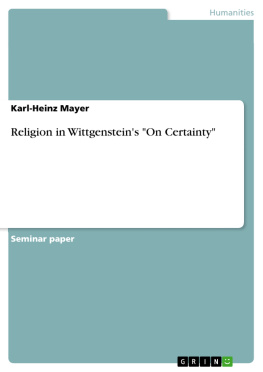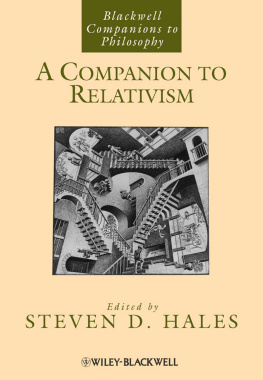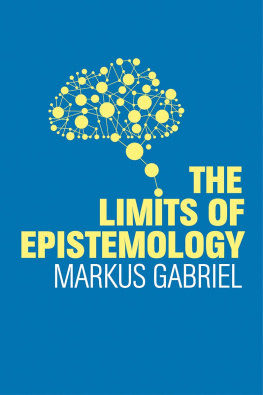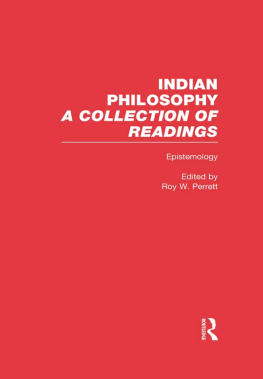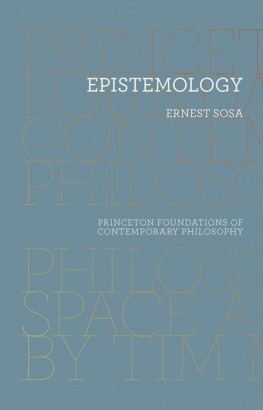Contents
Page List
Guide
Wittgenstein Rehinged
ANTHEM STUDIES IN WITTGENSTEIN
Anthem Studies in Wittgenstein publishes new and classic works on Wittgenstein and Wittgensteinian philosophy. This book series aims to bring Wittgenstein's thought into the mainstream by highlighting its relevance to 21st century concerns. Titles include original monographs, themed edited volumes, forgotten classics, biographical works and books intended to introduce Wittgenstein to the general public. The series is published in association with the British Wittgenstein Society.
Anthem Studies in Wittgenstein sets out to put in place whatever measures may emerge as necessary in order to carry out the editorial selection process purely on merit and to counter bias on the basis of gender, race, ethnicity, religion, sexual orientation and other characteristics protected by law. These measures include subscribing to the British Philosophical Association/Society for Women in Philosophy (UK) Good Practice Scheme.
Series Editor
Constantine Sandis University of Hertfordshire, UK
Forthcoming Titles in the Series
Extending Hinge Epistemology
Intercultural Understanding: Wittgensteinian Approaches
Meaning, Mind and Action: Philosophical Essays
Normativity, Meaning and Philosophy: Essays on Wittgenstein
Wittgenstein and Certainty as Tacit Knowledge
Wittgenstein and the Life We Live with Language
Wittgenstein on Other Minds
Wittgenstein Rehinged
The Relevance of On Certainty for Contemporary Epistemology
Annalisa Coliva
Anthem Press
An imprint of Wimbledon Publishing Company
www.anthempress.com
This edition first published in UK and USA 2022
by ANTHEM PRESS
7576 Blackfriars Road, London SE1 8HA, UK
or PO Box 9779, London SW19 7ZG, UK
and
244 Madison Ave #116, New York, NY 10016, USA
Copyright Annalisa Coliva 2022
The author asserts the moral right to be identified as the author of this work.
All rights reserved. Without limiting the rights under copyright reserved above, no part of this publication may be reproduced, stored or introduced into a retrieval system, or transmitted, in any form or by any means (electronic, mechanical, photocopying, recording or otherwise), without the prior written permission of both the copyright owner and the above publisher of this book.
British Library Cataloguing-in-Publication Data
A catalogue record for this book is available from the British Library.
Library of Congress Cataloging-in-Publication Data
A catalog record for this book has been requested.
ISBN-13: 978-1-83998-279-8 (Hbk)
ISBN-10: 1-83998-279-9 (Hbk)
[Cover image information to be inserted here, as necessary]
[Distribution information to be inserted here, as necessary]
This title is also available as an e-book.
CONTENTS
When I published Moore and Wittgenstein. Scepticism, Certainty, and Common Sense (2010a) and Extended Rationality. A Hinge Epistemology (2015) I could have not imagined that in just a few years hinge epistemology would have become one of the contemporary paradigms in epistemology.
Of course, this would not have been possible without the important contributions already made by Danile Moyal-Sharrock (2004), Crispin Wright (1985, 2004a, 2014) and Michael Williams (1992/1996), or the coeval one by Duncan Pritchard (2015). Yet, as even a cursory look at the number of publications concerning hinges in the last few years would show, it is only recently that hinge epistemology has started affirming itself both as a paradigm in general epistemology, including its bearing onto issues such as skepticism and relativism, and in social epistemology, with special attention to the nature of disagreement, testimony and trust, and in applied epistemology, with respect to epistemic injustice, and feminist philosophyjust to mention a few prominent examples, or branching out in areas such as moral, political, and religious epistemology.
Most interestingly to my mind, this surge of interest can be taken to show that Wittgensteins ideas in On Certainty (OC), far from being merely of historical interest, deserve to be taken very seriously by contemporary epistemologists, working in general, social, and applied epistemology. Still, they remain open to a variety of interpretations, which in turn may and do fuel an array of possible developments. This explains why hinge epistemology is often intertwined with exegetical work on OC.
It is perhaps because of such a rise of interest that I have been invited to contribute to the Anthem Studies in Wittgenstein by the series editorConstantine Sandisas the aim of this book series is to bring Wittgensteins thought into mainstream by highlighting its relevance to 21st century concerns. In fact, I take it, it is because my own worktogether with that of distinguished colleagueshas already contributed to bringing Wittgenstein into mainstream epistemology that that invitation has been issued.
I am therefore very grateful to have been given the opportunity to collect here some of the papers which have appeared after my two main monographs. In consultation with the series editor, I have decided to include in this volume only those papers that deal with the bearing of hinge epistemology on issues in general epistemology and that represent a development of the themes explored in those volumes. Hopefully, another book containing my recent reflections on social and applied hinge epistemology will appear in the next few years.
Stemming closely from those books, the papers collected here are better appreciated if one has at least some familiarity with my previous works. Yet, I do not presume or hope that only people who have already read those volumes will read the present one. It is with these new readers in mind that I have decided to include here extensive overviews of the ideas presented and defended in those monographs (23). Along the way, I signposted the themes that are developed further in this collection, so that interested readers may more easily follow the development of my views. For expository reasons, I present them in reverse chronological order. Readers new to my version of hinge epistemology will have an opportunity to see its main motivations and claims and will then decide if they also want to dig deeper in the exegetical issues to which OC gives rise and my stand on them. Readers who, by contrast, are already familiar with my former works, may well skip those final sections.
Another word of caution before proceeding. This is a collection of previously published papers. It is in the nature of this kind of volumes that they will likely contain repetitions. I have strived to minimize them as much as possible, sometimes by combining and cropping multiple papers in one, or by cutting some sections. Yet, some repetitions are inevitable and even necessary to make each chapter self-standing. Hopefully the result will not disappoint either a reader of the whole book or one interested only in some parts of it.
The Present Volume
The present volume develops many of the themes discussed in my previous monographs. It is divided into two parts. The first oneIn quest of a Wittgensteinian hinge epistemologycontains five chapters. The first twoWhich hinge epistemology? and Which hinge epistemology between animal, biscopic and constitutivist?take a close look at various other brands of hinge epistemology, proposed by Michael Williams, Crispin Wright, Danile Moyal-Sharrock and Duncan Pritchard, and offer reasons to side with my constitutivist version.



